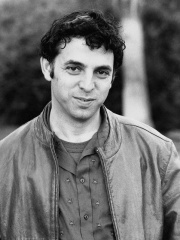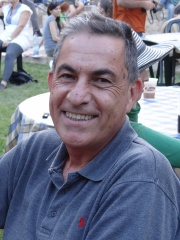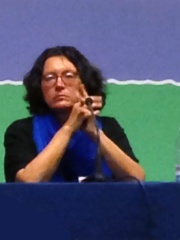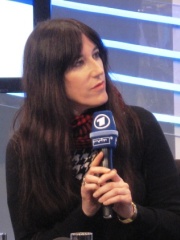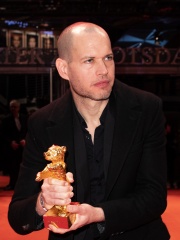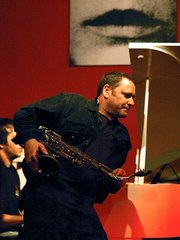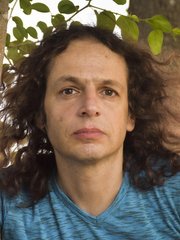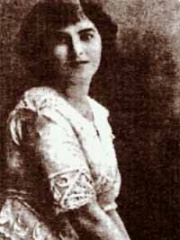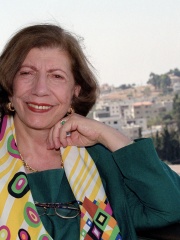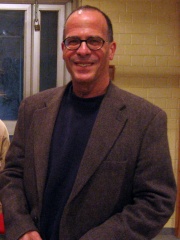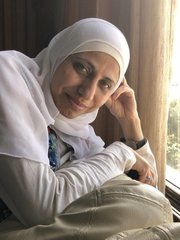
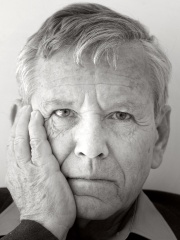
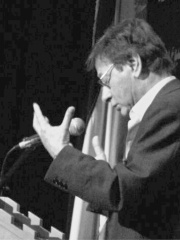
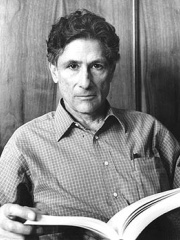
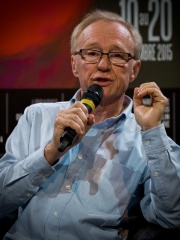

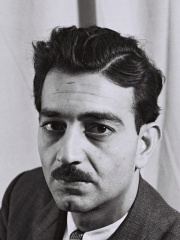

The Most Famous
WRITERS from Israel
Top 10
The following people are considered by Pantheon to be the top 10 most legendary Israeli Writers of all time. This list of famous Israeli Writers is sorted by HPI (Historical Popularity Index), a metric that aggregates information on a biography's online popularity. Visit the rankings page to view the entire list of Israeli Writers.

1. John the Evangelist (10 - 100)
With an HPI of 77.45, John the Evangelist is the most famous Israeli Writer. His biography has been translated into 46 different languages on wikipedia.
John the Evangelist (c. 6 AD – c. 100 AD) is the name traditionally given to the author of the Gospel of John. Christians have traditionally identified him with John the Apostle, John of Patmos, and John the Presbyter, although there is no consensus on how many of these may actually be the same individual.

2. Amos Oz (1939 - 2018)
With an HPI of 74.93, Amos Oz is the 2nd most famous Israeli Writer. His biography has been translated into 53 different languages.
Amos Oz (Hebrew: עמוס עוז; born Amos Klausner (עמוס קלוזנר); 4 May 1939 – 28 December 2018) was an Israeli writer, novelist, journalist, and intellectual. He was also a professor of Hebrew literature at Ben-Gurion University of the Negev. From 1967 onwards, Oz was a prominent advocate of a two-state solution to the Israeli–Palestinian conflict. He was the author of 40 books, including novels, short story collections, children's books, and essays, and his work has been published in 45 languages, more than that of any other Israeli writer. He was the recipient of many honours and awards, among them the Friedenspreis des Deutschen Buchhandels, the Legion of Honour of France, the Israel Prize, the Goethe Prize, the Prince of Asturias Award in Literature, the Heinrich Heine Prize, and the Franz Kafka Prize. In his obituary, The New York Times called Oz one of "Israel's most prolific writers and respected intellectuals".

3. Mahmoud Darwish (1941 - 2008)
With an HPI of 73.27, Mahmoud Darwish is the 3rd most famous Israeli Writer. His biography has been translated into 57 different languages.
Mahmoud Darwish (Arabic: مَحمُود دَرْوِيْش, romanized: Maḥmūd Darwīsh; 13 March 1941 – 9 August 2008) was a Palestinian poet and author who was regarded as Palestine's national poet. In 1988 Darwish wrote the Palestinian Declaration of Independence, which was the formal declaration for the creation of a State of Palestine. Darwish won numerous awards for his works. In his poetic works, Darwish explored Palestine as a metaphor for the loss of Eden, birth and resurrection, and the anguish of dispossession and exile. He has been described as incarnating and reflecting "the tradition of the political poet in Islam, the man of action whose action is poetry." He also served as an editor for several literary magazines in Israel and the Palestinian territories. Darwish wrote in Arabic, and also spoke English, French, and Hebrew.

4. Edward Said (1935 - 2003)
With an HPI of 73.06, Edward Said is the 4th most famous Israeli Writer. His biography has been translated into 72 different languages.
Edward Wadie Said (1 November 1935 – 24 September 2003) was a Palestinian and American academic, literary critic, and political activist. As a professor of literature at Columbia University, he was among the founders of post-colonial studies. As a cultural critic, Said is best known for his book Orientalism (1978), a foundational text which critiques the cultural representations that are the bases of Orientalism—how the Western world perceives the Orient. His model of textual analysis transformed the academic discourse of researchers in literary theory, literary criticism, and Middle Eastern studies. Born in Jerusalem, Mandatory Palestine, in 1935, Said was a United States citizen by way of his father, who had served in the United States Army during World War I. After the 1948 Palestine war, he relocated the family to Egypt, where they had previously lived, and then to the United States. Said enrolled at the secondary school Victoria College while in Egypt and Northfield Mount Hermon School after arriving in the United States. He graduated from Princeton University in 1957 and received a doctorate in English literature from Harvard University in 1964. His principal influences were Antonio Gramsci, Frantz Fanon, Aimé Césaire, Michel Foucault, and Theodor W. Adorno. In 1963, Said joined Columbia University as a member of the English and Comparative Literature faculties, where he taught and worked until 2003. He lectured at more than 200 other universities in North America, Europe, and the Middle East. As a public intellectual, Said was a member of the Palestinian National Council supporting a two-state solution that incorporated the Palestinian right of return, before resigning in 1993 due to his criticism of the Oslo Accords. He advocated for the establishment of a Palestinian state to ensure political and humanitarian equality in the Israeli-occupied territories, where Palestinians have witnessed the increased expansion of Israeli settlements. However, in 1999, he argued that sustainable peace was only possible with one Israeli–Palestinian state. He defined his oppositional relation with the Israeli status quo as the remit of the public intellectual who has "to sift, to judge, to criticize, to choose, so that choice and agency return to the individual".
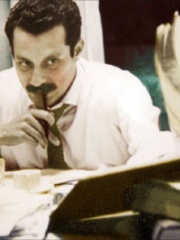
5. Ghassan Kanafani (1936 - 1972)
With an HPI of 68.23, Ghassan Kanafani is the 5th most famous Israeli Writer. His biography has been translated into 42 different languages.
Ghassan Fayiz Kanafani (Arabic: غسان فايز كنفاني; 8 April 1936 – 8 July 1972) was a prominent Palestinian author and militant, considered to be a leading novelist of his generation and one of the Arab world's leading Palestinian writers. Kanafani's works have been translated into more than 17 languages. Kanafani was born in Acre, Mandatory Palestine in 1936. During the 1948 Palestine war, his family was forced out of their hometown by Zionist militias. Kanafani later recalled the intense shame he felt when, at the age of 12, he watched the men of his family surrender their weapons to become refugees. The family settled in Damascus, Syria, where he completed his primary education. He then became a teacher for displaced Palestinian children in a refugee camp, where he began writing short stories in order to help his students contextualize their situation. He began studying for an Arabic Literature degree at the University of Damascus in 1952, but before he could complete his degree, he was expelled from the university for his political affiliations with the Movement of Arab Nationalists (MAN), to which he had been recruited by George Habash. He later relocated to Kuwait and then Beirut, where he became immersed in Marxism. In 1961, he married Anni Høver, a Danish pedagogue and children's rights activist, with whom he had two children. He became an editor and wrote articles for a number of Arab magazines and newspapers. His 1963 novel Men in the Sun received widespread acclaim and, along with A World that is Not Ours, symbolizes his first period of pessimism, which was later reversed in favor of active struggle in the aftermath of the 1967 Six-Day War. That year, he joined the Popular Front for the Liberation of Palestine (PFLP) and became its spokesman. In 1969, he drafted a PFLP program in which the movement officially adopted Marxism–Leninism, which marked a departure from pan-Arab nationalism towards revolutionary Palestinian struggle. In 1972, while he was in Beirut, Kanafani and his 17-year-old niece Lamees were killed by a bomb planted in his car by Mossad, which was suspected to be in response for the PFLP's role in the Lod Airport massacre; however, Kanafani's assassination may have been planned long before. Kanafani appeared with the massacre's perpetrators in a photograph shortly before the massacre and defended the tactics used in the massacre shortly before his assassination.

6. David Grossman (b. 1954)
With an HPI of 67.54, David Grossman is the 6th most famous Israeli Writer. His biography has been translated into 43 different languages.
David Grossman (Hebrew: דויד גרוסמן; born January 25, 1954) is an Israeli author. His books have been translated into more than 30 languages. In 2018, he was awarded the Israel Prize for literature.

7. A. B. Yehoshua (1936 - 2022)
With an HPI of 64.76, A. B. Yehoshua is the 7th most famous Israeli Writer. His biography has been translated into 30 different languages.
Avraham Gabriel "Boolie" Yehoshua (Hebrew: אברהם גבריאל "בולי" יהושע; December 9, 1936 – June 14, 2022) was an Israeli novelist, essayist, and playwright. The New York Times called him the "Israeli Faulkner". Underlying themes in Yehoshua's work are Jewish identity, the tense relations with non-Jews, the conflict between the older and younger generations, and the clash between religion and politics.

8. Emile Habibi (1922 - 1996)
With an HPI of 62.58, Emile Habibi is the 8th most famous Israeli Writer. His biography has been translated into 22 different languages.
Emile Shukri Habibi (Arabic: إميل حبيبي, romanized: ʾImīl Ḥabībī, Hebrew: אמיל חביבי; 28 January 1922 – 2 May 1996) was a Palestinian writer and politician with Israeli citizenship, who served as a member of the Knesset for the communist parties Maki and Rakah.

9. Justus of Tiberias (35 - 100)
With an HPI of 60.79, Justus of Tiberias is the 9th most famous Israeli Writer. His biography has been translated into 15 different languages.
Justus of Tiberias (Tiberias, c. 35 AD – Galilee, c. 100 AD) was a 1st century Jewish author and historiographer. All that we know of his life comes from the Vita which Flavius Josephus apparently wrote in response to the assertions made by Justus in his History of the Jewish War, published around 93/94 or shortly after 100. Justus's works have been lost and they currently survive only in small fragments from other works. After the Great Jewish Revolt (66–70), Justus was the secretary of King Agrippa II and waited until his death to publish his History of this revolt. He is also known as the author of two other writings which disappeared much later. Thus in the ninth century, Bishop Photios of Constantinople was still able to access a copy of the Chronicle of the Jewish Kings' written by Justus.
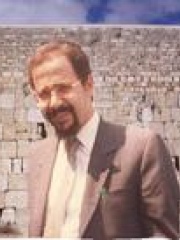
10. Ahron Daum (1951 - 2018)
With an HPI of 60.63, Ahron Daum is the 10th most famous Israeli Writer. His biography has been translated into 26 different languages.
Ahron Daum (Hebrew: אהרן דאום; January 6, 1951 – June 27, 2018) was an Israeli-born Modern-Orthodox rabbi, educator, author, and former chief rabbi of Frankfurt am Main from 1987 to 1993. From 1995 until his death in 2018, he was a lecturer at the Faculty for Comparative Religion in Antwerp, Belgium.
People
Pantheon has 30 people classified as Israeli writers born between 10 and 1992. Of these 30, 15 (50.00%) of them are still alive today. The most famous living Israeli writers include David Grossman, Etgar Keret, and Gideon Levy. The most famous deceased Israeli writers include John the Evangelist, Amos Oz, and Mahmoud Darwish. As of April 2024, 5 new Israeli writers have been added to Pantheon including Adania Shibli, Gilad Atzmon, and Amir Hetsroni.
Living Israeli Writers
Go to all RankingsDavid Grossman
1954 - Present
HPI: 67.54
Etgar Keret
1967 - Present
HPI: 58.82
Gideon Levy
1953 - Present
HPI: 58.57
Amira Hass
1956 - Present
HPI: 54.32
Zeruya Shalev
1959 - Present
HPI: 54.31
Leigh Bardugo
1975 - Present
HPI: 53.41
Rami Saari
1963 - Present
HPI: 51.51
Nadav Lapid
1975 - Present
HPI: 49.07
Adania Shibli
1974 - Present
HPI: 46.45
Gilad Atzmon
1963 - Present
HPI: 45.54
Amir Hetsroni
1968 - Present
HPI: 44.92
Sayed Kashua
1975 - Present
HPI: 44.55
Deceased Israeli Writers
Go to all RankingsJohn the Evangelist
10 - 100
HPI: 77.45
Amos Oz
1939 - 2018
HPI: 74.93
Mahmoud Darwish
1941 - 2008
HPI: 73.27
Edward Said
1935 - 2003
HPI: 73.06
Ghassan Kanafani
1936 - 1972
HPI: 68.23
A. B. Yehoshua
1936 - 2022
HPI: 64.76
Emile Habibi
1922 - 1996
HPI: 62.58
Justus of Tiberias
35 - 100
HPI: 60.79
Ahron Daum
1951 - 2018
HPI: 60.63
May Ziade
1886 - 1941
HPI: 60.62
Salma Khadra Jayyusi
1926 - 2023
HPI: 58.59
Meir Shalev
1948 - 2023
HPI: 58.57
Newly Added Israeli Writers (2025)
Go to all RankingsAdania Shibli
1974 - Present
HPI: 46.45
Gilad Atzmon
1963 - Present
HPI: 45.54
Amir Hetsroni
1968 - Present
HPI: 44.92
Annemarie Jacir
1974 - Present
HPI: 39.88
Dareen Tatour
1982 - Present
HPI: 39.53
Overlapping Lives
Which Writers were alive at the same time? This visualization shows the lifespans of the 13 most globally memorable Writers since 1700.

